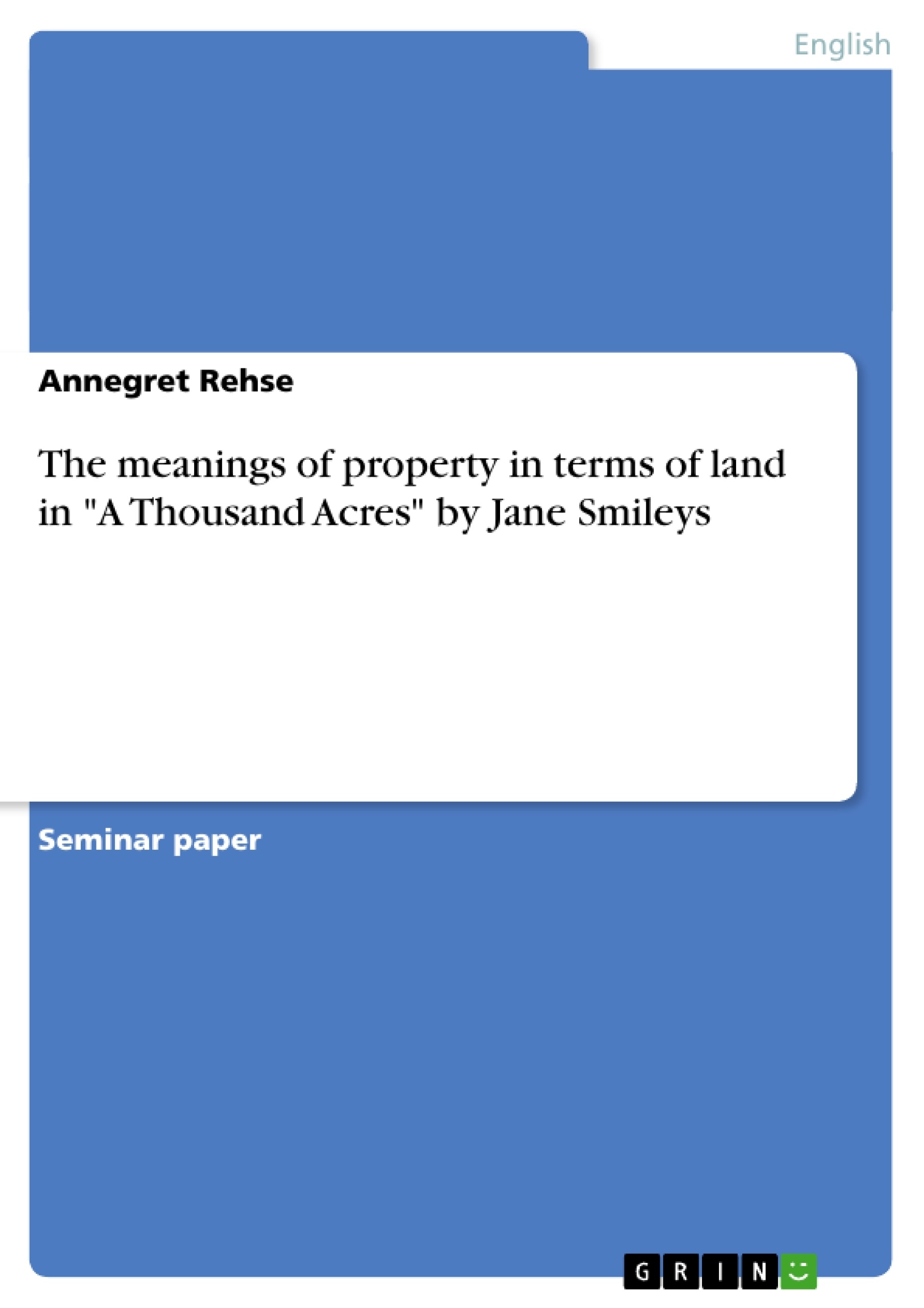This work deals with concepts of ownership in terms of land in the novel "A Thousand Acres" written by Jane Smiley. The novel was written in 1991 and was rewarded a Pulitzer Prize. Jane Smiley rewrote the Shakespearean play King Lear by narrating the story from the eldest daughter’s point of view. However, A Thousand Acres is not only a rewriting of Shakespeare’s work, it also comments on the social and agricultural circumstances in the United States of the 1960s and 70s, where the novel is set. Her critique in this novel points towards industrialised farming and the exploitation of land and its resources.
The aim of the paper ist to find out how agriculture and farming are represented in "A Thousand Acres". How does Jane Smiley describe the results of industrialised farming? Is there any return? How do people cope with agribusiness and its consequences? What is the structure of the society that lives for agribusiness? In the course of answering these questions I will try to draw relating problems between Smiley's "A Thousand Acres" and Shakespeare's "King Lear" and will try to point out the differences between the novel and the play in matters pertaining to concepts of land-ownership.
Table of Contents
- INTRODUCTION
- THE PLOT
- POLITICAL CIRCUMSTANCES OR: THE SETTING
- MEANING OF OWNERSHIP IN A THOUSAND ACRES
- NATURE
- THE TILES
- NATURE VERSUS CULTURE
- FAMILY
- COMMUNITY
- CONCLUSION
Objectives and Key Themes
This seminar paper aims to analyze the concept of ownership in terms of land, as portrayed in Jane Smiley's novel A Thousand Acres. The paper explores how the novel, while reimagining Shakespeare's King Lear from the eldest daughter's perspective, also critiques the social and agricultural circumstances of the United States in the 1960s and 1970s. It examines the impact of industrialized farming and the exploitation of land and resources, highlighting the consequences for individuals, families, and the broader community.
- The meaning of ownership and inheritance in the context of land
- The impact of industrialized farming on the environment and society
- The dynamics of family relationships and the complexities of generational trauma
- The role of gender and power in shaping individual choices and societal structures
- The relationship between nature and culture, and the consequences of disrupting this balance
Chapter Summaries
The introduction provides an overview of the novel's context, highlighting Jane Smiley's critique of industrialized farming and the exploitation of land resources. The paper then delves into the plot, summarizing the central events of the novel, including Larry Cook's decision to divide his land among his daughters and the subsequent family conflicts. The third chapter analyzes the historical and political circumstances of the novel's setting, focusing on the American agricultural policies of the 1960s and 1970s.
Keywords
The key themes and concepts explored in this paper include ownership, land, inheritance, industrialized farming, agriculture, agribusiness, family, gender, power, nature, culture, and the social and economic consequences of the industrialization of agriculture.
- Quote paper
- Annegret Rehse (Author), 2005, The meanings of property in terms of land in "A Thousand Acres" by Jane Smileys, Munich, GRIN Verlag, https://www.grin.com/document/84573




